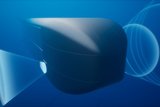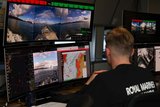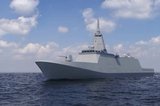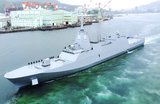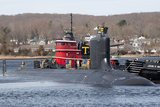Latest NSC gets TRS-3D Baseline D radar
Airbus Defense and Space will provide the TRS-3D Baseline D multi-mode radar (MMR) for the US Coast Guard's ninth National Security Cutter (NSC), the company announced on 9 January.
TRS-3D radars are used on all coast guard NSCs under contract with Lockheed Martin.
The multi-mode naval radar, designated AN/SPS-75, uses gallium nitride (GaN) technology for air and surface surveillance, target acquisition, self-defence, gunfire support and aircraft control. It automatically detects and tracks all types of air and sea targets, alleviating crew workload requirements.
Mike Cosentino, president of Airbus Defense and Space, said: ‘The AN/SPS-75 is the right choice to meet coast guard requirements for a multi-mode radar. It is currently meeting operational requirements and is consistent with coast guard investments in training infrastructure ashore, as well as with their existing sustainment programme.’
Related Equipment in Defence Insight
More from Naval Warfare
-
![Mitsubishi eyes future with Australia’s Mogami selection]()
Mitsubishi eyes future with Australia’s Mogami selection
With Australia’s selection of the Mogami-class for Project Sea 3000, Mitsubishi is investigating local production in the next decade as potential export opportunities emerge.
-
![Hanwha wins Australian government approval to increase its stake in Austal]()
Hanwha wins Australian government approval to increase its stake in Austal
The contract would mean the two shipbuilders can collaborate strategically and enhance shipbuilding capabilities in Western Australia.
-
![Royal Australian Navy sizes up modernisation plans for new and existing capabilities]()
Royal Australian Navy sizes up modernisation plans for new and existing capabilities
The Australian navy is pushing ahead with its efforts to modernise its workforce and capabilities while balancing risky submarine upgrades, ageing Collins-class boats and a shrinking minehunter fleet. Head of navy capability RAdm Stephen Hughes updated Shephard on the force’s progress.
-
![UK to join US Navy’s Virginia-class submarine assembly effort to speed up construction]()
UK to join US Navy’s Virginia-class submarine assembly effort to speed up construction
The expansion of the Virginia-class submarine construction to UK shores could accelerate the project as US shipbuilders continue to fall short of delivery goals.









